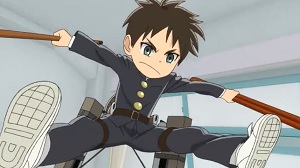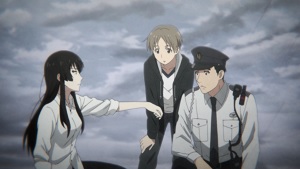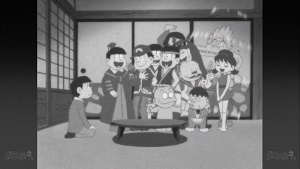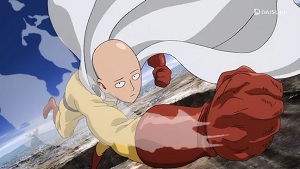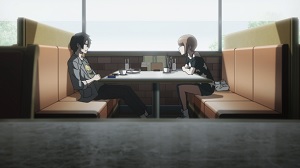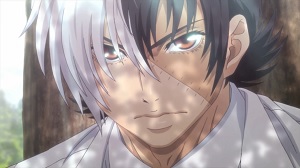interviewed by Carl Slaughter
 He talks with Diabolical Plots about self publishing, self recording, the sci fi humor market, buddy stories, the rambling/interjective narrative style of his main character, his recent how-to guest blog on Cat Rambo’s site (you guessed it, how to write humor) , the sci fi humor authors and stories that influenced him, his startup self publishing service, his recent membership in SFWA, and his fascination with Tesla conspiracy theories.
He talks with Diabolical Plots about self publishing, self recording, the sci fi humor market, buddy stories, the rambling/interjective narrative style of his main character, his recent how-to guest blog on Cat Rambo’s site (you guessed it, how to write humor) , the sci fi humor authors and stories that influenced him, his startup self publishing service, his recent membership in SFWA, and his fascination with Tesla conspiracy theories.
He also takes a crack at a 700 word flash piece, “The Moment I Laid Eggs in You,” by Josh Vogt, recently published in Mike Resnick’s Galaxy’s Edge. One of Resnick’s trademarks is humor.
(Mike Resnick, current holder of the most Hugo nominations (with second place far behind), has been interviewed here at Diabolical Plots, as has current SFWA president Cat Rambo.)
Why go straight to novel instead of building a short story resume?
That’s a good question. There wasn’t a plan to it at all. I started out writing screenplays (and not selling them), then an anti-self-help book titled Unleash the Sloth! 75 Ways to Reach Your Maximum Potential By Doing Less, then just naturally went for another book, this time long enough to be called a novel. I’ve got lots of short stories, snippets of stuff, in my horde, but haven’t the slightest clue how to go about selling them to publications. Maybe you could give me a few pointers.
Why self publish?
Rejection. Well, not entirely. I love building things myself, and as a graphic designer too, I love creating art, books, websites, whatever. So when the rejections started coming in for my manuscript, I knew I couldn’t be the author who waits for the two-hundredth rejection before hitting something. Instead, I said “You know what? The tools are out there now, the playing field is starting to level, so f**k it – I’ll just do it myself.” Of course, the BIG bummer of self-publishing is that you start with ZERO exposure – no agent, or publicist, or publisher out there helping you get noticed. So I’ve had to learn that myself, too. But I’m definitely learning, and enjoying it as I go. (Oh, and I get to keep 70% of my sales with Amazon, and 40% of my sales with Audible. That rocks.)
You also help other authors self publish. What can you teach them and what can you do for them?
Well, it’s in the infancy stage right now, but I’m enjoying the ride and getting moving on some projects. There are three ways I’m helping authors: 1. For maybe two or three books a year, I’m handling the whole process, from editing to cover design, to production, platform building and promotion; 2. For authors who just need a particular service, like cover design or interior layout, I offer a la carte paid services; 3. For DIY folks like myself, I post about things I’m learning as I go on my website for Goldfinch Publishing. It’s all free, and people are starting to reach out and let me know it’s helping, particularly with their self-published audio books.
Your book is also available on Audible. And you did your own recording. How easy/difficult is that and what’s involved?
I’ve got lots of background in audio recording and voiceover, so I found it easy. But I did write up a lengthy blog post to help others do it themselves as well — because without any experience, as long as you have a few bucks for equipment, a decent voice, and common sense, there’s no reason you can’t do it yourself too. The post is here. In short, you need an account with ACX/Audible (easy); recording software like Garageband (which comes free with all Macs); a decent mic (you can get for under a hundred bucks); headphones; a room that can get quiet, and some foam/blankets, etc., whatever you can use to deaden the sound in the room; and PATIENCE. It took a solid week to record my novel, and a solid week to edit it and upload it to Audible.
How much does an audio book sell for, versus an ebook, versus a tree book?
I don’t have any control over the pricing for the audio book, so Audible prices it at $19.95 (I think that’s kind of high, but like I said, I don’t get to determine price). The ebook is $3.99. And the print book is $10.79.
You recently wrote a guest blog for Cat Rambo about sci fi humor writing. How did you arrive at each of those 8 lessons?
I’d say it’s a mish-mash of learning, mostly through reading, taking classes, and trial and error. For example, with “Exaggerated Contrast”, John Vorhaus’ book The Comic Toolbox does a great job of walking you through the idea of fish-out-of-water and how it works. But then you start to see it everywhere, in so many things you read and watch on TV, and you play with it in your writing, and eventually it becomes one of the tools in your own toolbox. For “It’s Not About the Jokes,” that probably started when I took a screenwriting class at NYU, and my professor lightly scolded me for just sprinkling in jokes in my work to make it funny. And from then on I made sure to be wary of “jokes.” Some of these that I’ve learned haven’t come from anywhere in particular, like “Playfulness” and “Heart” – I think those were learned a looooonnnng time ago when I was a kid. It’s just always been the way I look at the world, that no matter how bad things are, there’s always something funny in there somewhere, and I’ve always sort of known that the books that I don’t like just lay there flat, with no heart in their characters.
Perfect timing. There’s a sci fi comedy in the latest issue of Mike Resnick’s Galaxy’s Edge. “From the Moment I Laid Eggs in You,” a flash piece (700 words) by Josh Vogt. What lessons can we learn from that story?
This story’s great. It sets up the expectation right off (couple just had sex). Then right into the “discovery” (of her egg-laying) — which totally upends our expectations. Totally opposite to the norm. Then it becomes an argument (arguments can be the best comedy), and the classic twist at the end (another defeat of our expectations). It’s great.
What kind of market is there for sci fi comedy?
I actually think it’s an untapped market. You have just a couple of huge traditional names in sci-fi humor, Douglas Adams and Terry Pratchett, and maybe Philip K. Dick, and now you have only a couple of modern names that immediately spring to mind: John Scalzi, David Wong maybe. But with successes like Big Bang Theory (a total sci-fi nerdfest comedy) on TV, I think that shows there’s a great potential market for more sci-fi humor — not only does that sit-com grab sci-fi fans, but it crosses over into the mainstream, people who want something funny and entertaining who aren’t necessarily sci-fi fans.
Why Tesla?
For a long time I’ve been fascinated with conspiracy theories. They’re very out-there, and usually hilarious. One in particular that I always thought was cool was the theory that Nikola Tesla, in his later years, kept a series of secret journals that contained plans for advanced technologies, some of which might be used as weapons, or as free energy for all. The story goes that the government (of course) took these journals upon his death, and they were never seen again. Also, the fact that New York was home to Tesla, one of history’s great inventors, responsible for alternating current, radio, x-rays, and more — and we never hear about him — made him even more intriguing to me.
Your main character is a vivid narrator – when he’s not interjecting or rambling. So why does he interject and ramble so much?
Chip is an exaggeration of myself, and in my writing I tend to interject a lot (in case you haven’t noticed). So it’s natural that he would ramble on even more. But I also think, in my everyday conversations with people, that there is a TON of rambling and interjecting going on. Just listen to two random people talking at a mall, or walking out after a movie, or standing in line at Starbucks. Sometimes these conversations are nothing BUT interjections! I wanted my book to feel very conversational, very much like your ADD friend is blabbing to you about his adventures, while you’re waiting on line at Starbucks.
Why a sci fi misadventure instead of a sci fi adventure?
Misadventures are funnier. Think about your favorite sit-coms: the funniest situations are the ones where the most things go wrong. Modern Family is a perfect example of this. Their writers are great at creating little farces, where multiple things keep going wrong, but in the end the resolution makes you feel wonderful. And I always loved Dortmunder, the cat burglar from the old Donald Westlake novels. Those novels were one misadventure after another, but made the ride a whole lot of fun, and actually made you root for Dortmunder even harder. (And laugh harder.)
Why a buddy story?
Who doesn’t like a buddy story? Laurel and Hardy. Abbott and Costello. Crosby and Hope. Chandler and Joey. Aziraphale and Crowley in Good Omens, and David and John in John Dies at the End. Seth Rogen and James Franco. The list goes on and on and on. There’s something about a best friend that we can all relate to. It makes the story and the humor more intimate, it makes it easier to root for the hero, it gives the hero a friend to confide in (to help tell the story), and a foil to bicker with (to increase the comedy).
Will there be further interdimensional misadventures with Chip and his buddy? Will the girlfriend return for the sequel? Will the government be involved again? Will it involve another one of Tesla’s secret inventions? Will it involve time travel?
I said when I finished this book that I didn’t think I was a sequel kind of guy. But the response has been great, and many people have asked about a sequel, and I’ve caught myself thinking things like “I wonder what really happened to Bobo?” If I do write a sequel, you can bet that it’ll have everything you just mentioned – and more. I’d make it as over-the-top as possible.
Which sci fi humor authors influenced you?
The ones I mentioned above: Douglas Adams, Terry Pratchett, John Scalzi, David Wong.
Which sci fi humor stories influenced you?
Adams’ Hitchhiker’s Guide to the Galaxy, Pratchett’s Good Omens, anything by John Scalzi but maybe Agent to the Stars is my fav, and even though it’s not sci-fi, I absolutely loved John Dies at the End. There are also lots of Philip K. Dick stories that are total gems and hit your funny bone straight on.
Did your advertising background contribute to your fiction skills?
I guess, but only in the sense that all of our past experiences help us in whatever our next thing is. For example, writing copy for ads for twenty years certainly helped my grammar, my pacing, my ability to surprise and delight (hopefully), so maybe those things helped my fiction. But I’ll tell you what the advertising background really helps with: marketing books. As a self-published author, marketing is completely up to you. So I think my experience has given me a bit of a head start, and has helped tremendously.
Any stories in the hopper?
Yes! I’m working on my next sci-fi comedy novel, about an A.I. that finds itself in the middle of nowhere, with a very important package to deliver. And I’ve got a bunch of things behind that, clamoring for my attention. The hopper is full. That makes me happy.
What’s your take on the SFWA?
I’m new to the SFWA (Science Fiction & Fantasy Writers of America), but so far I like being a member a lot. There are tons of resources for finding your way as a new author, like finding out avenues to sell your book, or targeting blogs for guest posts, comparing notes on promotions and book sales. They have very active member forums — every time I’ve asked a question, it gets answered right away. And I’ll admit I really like the credibility that it lends me as an author. You can’t just pay your dues and become a member: you have to have sold a certain number of books, and only if you pass that threshold are you allowed to become a member. In other words, you can define yourself as a professional. I like that.
Any advice to aspiring sci fi writers?
With just one sci-fi novel out, and an anti-self-help book, and a bunch of short stories and screenplays piled up in my drawer, I’m not sure I’m the one that should be giving advice to aspiring writers. But if I had to say one thing, I’d repeat what I’ve heard lots of other folks say: that this is a loooonng road, with no shortcuts, so keep doing your best work, over and over again, and enjoy yourself!
 Carl Slaughter is a man of the world. For the last decade, he has traveled the globe as an ESL teacher in 17 countries on 3 continents, collecting souvenir paintings from China, Korea, Thailand, Vietnam, and Egypt, as well as dresses from Egypt, and masks from Kenya, along the way. He spends a ridiculous amount of time and an alarming amount of money in bookstores. He has a large ESL book review website, an exhaustive FAQ about teaching English in China, and a collection of 75 English language newspapers from 15 countries.
Carl Slaughter is a man of the world. For the last decade, he has traveled the globe as an ESL teacher in 17 countries on 3 continents, collecting souvenir paintings from China, Korea, Thailand, Vietnam, and Egypt, as well as dresses from Egypt, and masks from Kenya, along the way. He spends a ridiculous amount of time and an alarming amount of money in bookstores. He has a large ESL book review website, an exhaustive FAQ about teaching English in China, and a collection of 75 English language newspapers from 15 countries.




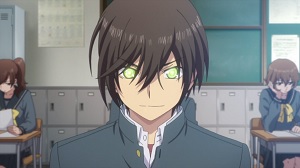

![Pageflex Persona [document: PRS0000039_00012]](https://www.diabolicalplots.com/wp-content/uploads/2015/11/Long-List-BookCoverebook-200x300.jpg)
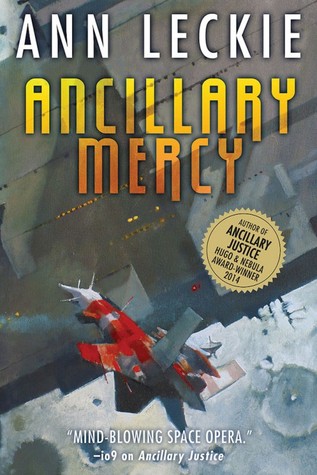 Ancillary Mercy is the third and final book in Ann Leckie’s award-winning Imperial Radch series with previous installments Ancillary Justice and Ancillary Sword. If you are a newcomer to the series, these are books that I would recommend reading in order, otherwise there’s a lot of important events that aren’t going to make a lot of sense. You can read
Ancillary Mercy is the third and final book in Ann Leckie’s award-winning Imperial Radch series with previous installments Ancillary Justice and Ancillary Sword. If you are a newcomer to the series, these are books that I would recommend reading in order, otherwise there’s a lot of important events that aren’t going to make a lot of sense. You can read 
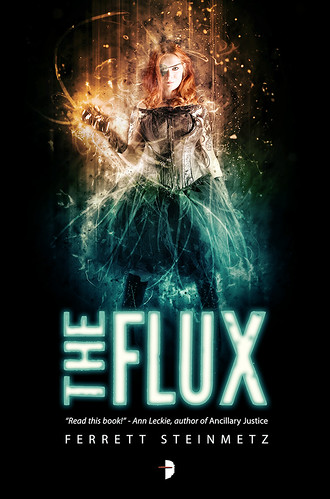 THE FLUX is the sequel to Ferrett Steinmetz’s premier book FLEX that was published earlier this year. If you haven’t read the first book, I recommend reading FLEX before this one–
THE FLUX is the sequel to Ferrett Steinmetz’s premier book FLEX that was published earlier this year. If you haven’t read the first book, I recommend reading FLEX before this one–